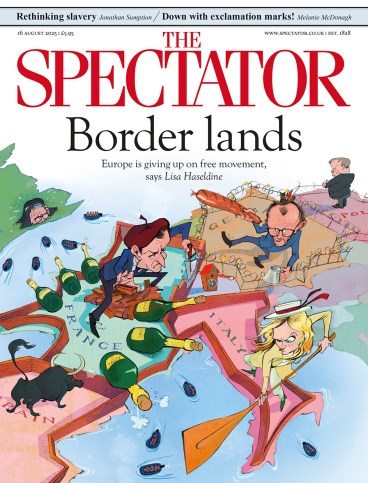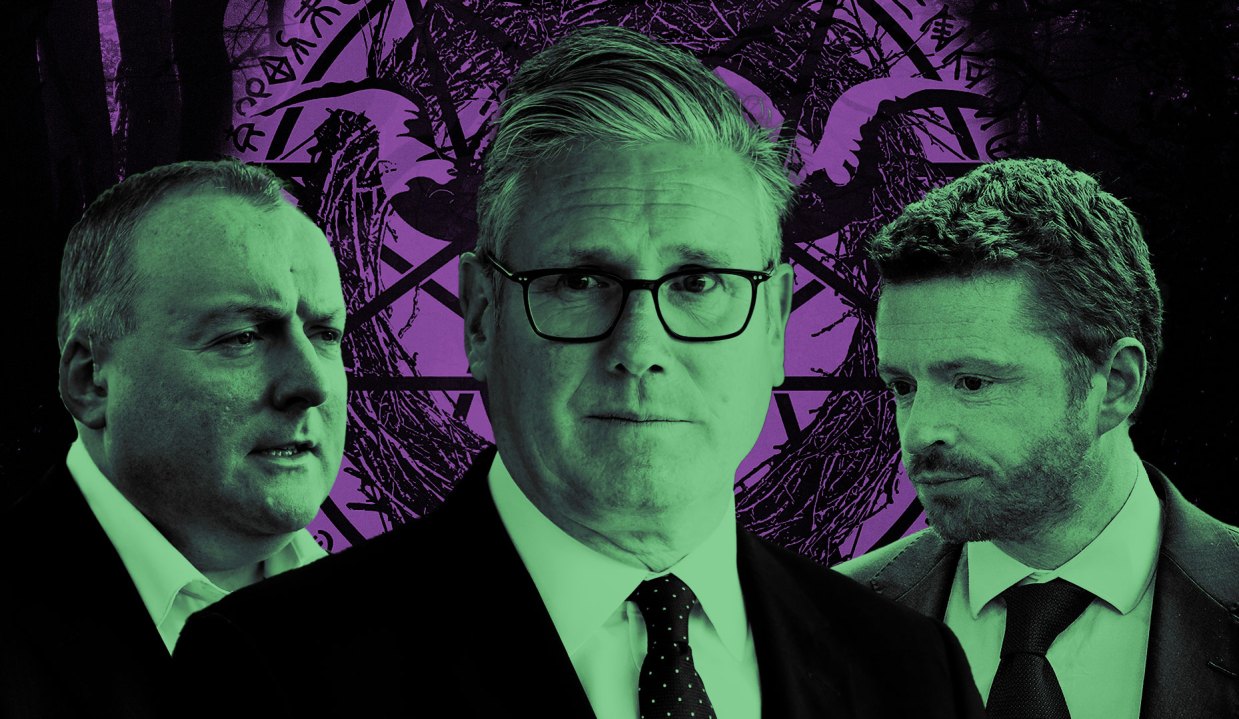
Senior Labour figures have given up hope of beating Nigel Farage in 2029. There are two causes for this pessimism. One is the economy. Forecasts suggest living standards will continue to decline over the next four years. The other is illegal immigration, which Keir Starmer will continue to make noises against, but which his human-rights-lawyer instincts prevent him from tackling.
Faced with such a grim future, some Labour advisers are speaking about leaving the government to avoid having their reputations tainted by what comes next. Others are more ruthless. They point to another tool: the practice called ‘opposition research’ but known better as the ‘dark arts’. The aim is to target Farage not by engaging with his ideas, but by using the press to reveal compromising information about his inner circle to tarnish Reform’s reputation.
This is not a new feature of politics, but Labour’s recent personnel changes suggest a hardening in strategy. Damian McBride – whose tactics when employed by Gordon Brown were so toxic that even Alastair Campbell denounced them – is back as an adviser to Yvette Cooper. Paul Ovenden, the government’s new director of strategy, spent his time in opposition directing Labour’s attack and rebuttal unit. Sources tell me that an ‘attack team’ has been assembled in No. 10 with the remit of challenging Reform. The team will work under Morgan McSweeney, Starmer’s political secretary, who was brought into the centre of politics by the original ‘Prince of Darkness’, Peter Mandelson.
In the early 2000s McSweeney worked on Mandelson’s ‘Excalibur system’, a database which New Labour used to gather information about internal political rivals and intimidate recusant party members. He then led the purges against the Corbynites and supporting media institutions, such as the Canary, in part through the digital collection of anti-Semitic activity on social media.
Farage has been so scrutinised in his decades on the front line of politics that even Labour knows digging up his old controversial comments is pointless. Instead, I am told, the attack operation will focus more on the people surrounding him. George Cottrell, officially an unpaid Reform adviser, who in 2016 served eight months in an American jail for wire fraud, has been mentioned as a potential target.
Public records and Meta’s own transparency tools show Reform UK’s official Facebook page has at least one administrator based in Montenegro – where Cottrell lives and operates part of his business empire. This finding has been verified through Facebook’s ‘Page Transparency’ feature. In recent days, a mysterious Substack named ‘The State of UK’ has published detailed investigations into Cottrell’s business network.
Much of this is reminiscent of the tactics which Democratic operatives attempted to use with Donald Trump: pursuing legal, financial and reputational warfare against not just him, but those around him. The campaign is likely to fail here for the same reason it failed in America. It hands Farage the narrative that he is a popular figure being hounded because he is a threat to the establishment.
The political class no longer controls the conversation in the way it once did. The idea that stories can be seeded in the Times and picked up by Newsnight and assumed to have public impact belongs to a media ecosystem that no longer exists. Most voters will not hear smears unless they are mocked or repurposed on social media – and by that point, they usually serve the opposite purpose.
How the establishment responds to the increasingly credible prospect of Farage becoming PM will have consequences for the future of liberal democracy. The two-party system has historically survived by accommodating challenges. Unlike our continental neighbours, we avoided revolutions not through suppression, but by absorbing dissenting voices into the system, allowing change to happen peacefully.
A hysterical reaction to Farage risks ending that tradition. He is not calling for violence but for politics rooted in the national interest, democratic instinct and popular consent. If the response to that is smears and legal warfare, it will not be him who looks dangerous – it will be the system itself.









Comments